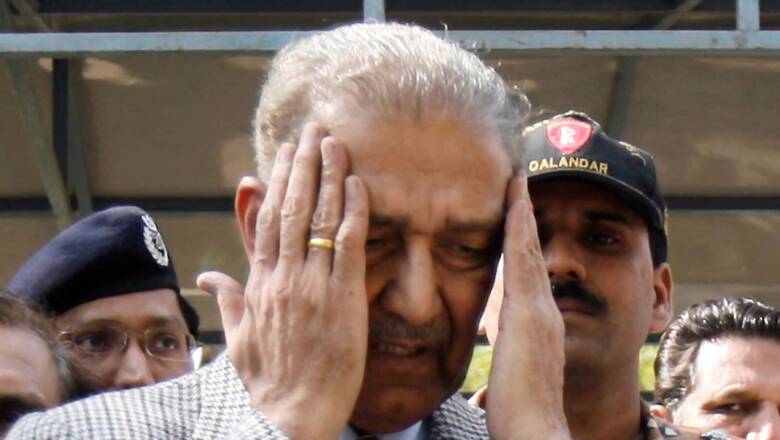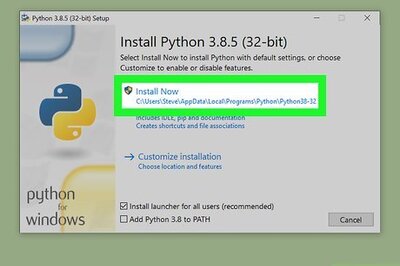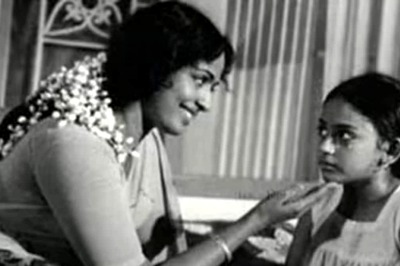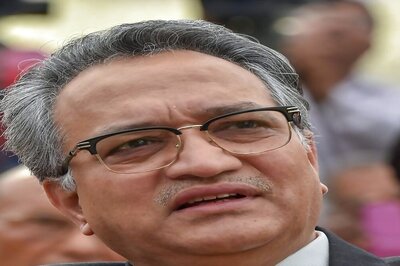
views
Abdul Qadeer Khan, revered as the father of Pakistan’s nuclear bomb, has died at 85, state-run broadcaster PTV reported Sunday.
The Pakistani atomic scientist, hailed as a national hero for making his country the world’s first Islamic nuclear power but regarded by the West as a dangerous renegade responsible for smuggling technology to rogue states, died after being transferred to hospital with lung problems, PTV said.
According to reports, the 85-year-old Khan was admitted to Khan Research Laboratories Hospital on August 26 after he tested positive for Covid-19. Later, he was shifted to a military hospital in Rawalpindi.
He died after being transferred to the KRL Hospital in Islamabad with lung problems, state-run broadcaster PTV reported.
Indian Roots
Abdul Qadeer Khan was born in 1936 in Indian city Bhopal in Madhya Pradesh. He had immigrated along with his family to Pakistan in 1947 after partition of India. He graduated in metallurgy from the University of Karachi in 1960 and later pursued higher studies in West Berlin and the Netherlands. He was awarded a doctorate in metallurgical engineering by the Catholic University of Leuven in Belgium in 1972.
Father of Pakistan’s nuclear program
His contribution to Pakistan nuclear programme was the procurement of a blueprint for uranium centrifuges, which transform uranium into weapons-grade fuel for nuclear fissile material. For his contribution to the nuclear program, he is often dubbed the “father of Pakistan’s nuclear program,” having founded the Engineering Research Laboratory to help the South Asian country develop uranium enrichment capability.
Though he was hailed as a national hero for transforming his country into the world’s first Islamic nuclear power, he was regarded by the West as a dangerous renegade responsible for smuggling technology to rogue states.
Put under House Arrest
He landed in controversy when he was accused of illegally proliferating nuclear technology to Iran, Libya and North Korea. He was placed under house arrest in Pakistan in 2004 after he confessed to selling nuclear secrets to foreign countries. Several of his collaborators in Europe have been arrested in Germany, Switzerland and South Africa. Khan was released in 2009.
Though a court ended his house arrest, but Khan’s movements were strictly guarded, and he was accompanied by authorities every time he left his home in an upscale sector of leafy Islamabad.
Controversies
Before Pakistan became a nuclear power, Abdul Qadeer Khan was charged with stealing blueprint for uranium centrifuges from The Netherlands while working for Anglo-Dutch-German nuclear engineering consortium Urenco, and bringing it back to Pakistan in 1976. By 1978, his team had enriched uranium and by 1984 they were ready to detonate a nuclear device, a report in France24 said.
In another blow, he was removed from the chairmanship of Kahuta Research Laboratories in March 2001, reportedly under US pressure. Later president Pervez Musharraf made him a special adviser.
He also stirred a new controversy during an interview where he said that he transferred nuclear technology to two countries on the direction of slain prime minister Benazir Bhutto. He didn’t name the two countries.
Failed Politician
He also tried his luck in politics by forming a party — the Tehreek-e-Tahafuz Pakistan (TTP) in July 2012 and hoped of winning votes on the basis of the respect he still commands in Pakistan.
But he dissolved the party in a year after none of its 111 candidates won a seat in national elections.
Report says that many schools, universities, institutes and charity hospitals across Pakistan are named after him, his portrait decorating their signs, stationery and websites.
Immediately after his death, Pakistan’s President Arif Alvi said in a tweet he was “deeply saddened to learn about the passing of Dr. Abdul Qadeer Khan”, who he had known personally since 1982.
“He helped us develop nation-saving nuclear deterrence and a grateful nation will never forget his services.”
Read all the Latest News , Breaking News and IPL 2022 Live Updates here.



















Comments
0 comment